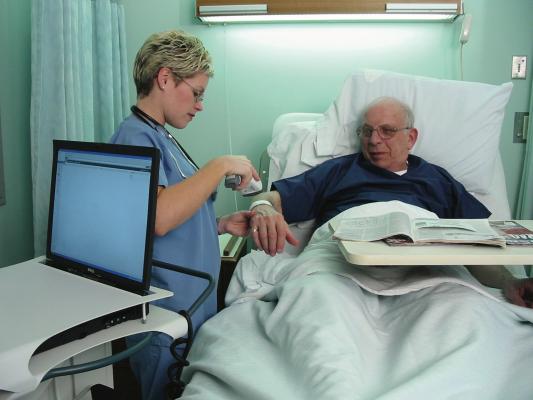
July 3, 2019 — The new Post-Acute Care Heart Failure Certification offered from the American Heart Association (AHA) provides education and resources to skilled nursing facilities to reduce the hospital readmissions for heart failure patients.
More than 6 million Americans are living with heart failure. The Post-Acute Care Heart Failure Certification is now available to all skilled nursing facilities in the United States. These skilled nursing facilities may now be recognized for providing access to quality care for treatment of heart failure patients based on a new clinical standard of care established through this certification offered by the AHA.
“Certification offers post-acute heart failure programs a model to ensure best practices and evidence–based medicine is implemented effectively for the delivery of cohesive and consistent patient care,” said Ileana L. Piña, M.D., MPH, FAHA, FACC regional and national director of Heart Failure Detroit Medical Center and volunteer for the association.
Hospitals that work with the AHA through Get With The Guidelines - Heart Failure and that obtain this certification will have access to tools, education and resources to appropriately discharge patients to a high-quality-care skilled nursing facility. The association is offering certified skilled nursing facilities tools to bridge gaps and integrate standardized care, quality initiatives, clinical best practices and the latest scientific guidelines into their post-acute heart failure patient care processes.
To date, the AHA’s growing portfolio of quality performance improvement programs have focused primarily on the in-hospital environment and in the pre-hospital setting and emergency medical services. The association said it is committed to quality improvement in the continuum of care for all patients by extending its certification efforts to include post-acute care providers.
“Ultimately we want to improve cardiac care across the board – in a wide variety of settings,” said John Meiners, chief of mission aligned business, at American Heart Association. “It’s estimated that heart failure costs Americans about $30 billion each year, and the costs are expected to rise to almost $70 billion by 2030. With medical costs for heart failure growing rapidly, this signals the need to implement efficient, coordinated, high-quality care efforts through certification to optimize patient outcomes and control costs.”
The delivery of post-acute care can be inconsistent across settings and is often disjointed from hospital and healthcare systems, leading to frequent hospital readmissions, variability in care and less than optimal outcomes for patients. Many heart failure patients admitted to skilled nursing facilities after being discharged from the hospital are readmitted to the hospital within 30 days.
Benefits of certification for skilled nursing facilities and hospitals may include cost savings, reduction in readmissions, increased patient volume to certified centers and improved transitions of care between the hospital and skilled nursing facilities, and ultimately to home.
“Certification provides patients with assurance that these centers meet a high standard of quality care for treatment of heart failure based on the latest scientific research and guidelines,” said Michaelle P. Callihan DNP, FNP-BC, CHFN service line director, Heart Failure and AMI care transformation clinical director at Allegheny Health Network. “Certification recognizes skilled nursing facilities are committed to following proven treatment guidelines to fully address the needs of patients with heart failure.”
This initial certification will focus on heart failure treatment as a result of the prevalence and financial burden associated with the condition. The Association plans to extend the focus of certification into other areas of post-acute cardiac care including post-cardiac surgery, acute myocardial infarction and cardiac rehabilitation.
For more information: www.heart.org/certification


 February 03, 2026
February 03, 2026 









